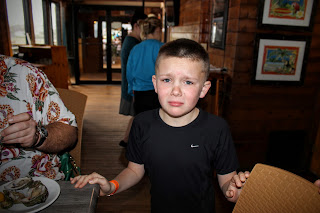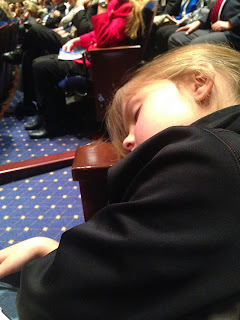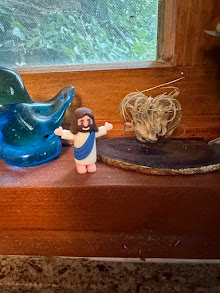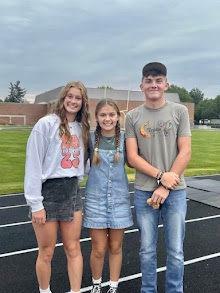'I'm working on a biography of St. Paul for Lent', I told Ben a week and a half ago. "Ha!", he said, "You'd better hurry!"
Sure enough, it is Maundy Thursday and I'm not even to the Road to Damascus....which I'm gonna assume is in Rabbi Paul, even though I have not skipped ahead. That's a bad habit I used to have when reading a particularly engrossing tale; did any of the characters I cared for die in the book? Was there a happy ending? Was there a sequel? Sometimes I just couldn't bear the suspense spun by the author.....a peril foregone if one is reading a biography. Rabbi Paul will still be on my reading list after Easter, and, probably Pentecost as well.
I'm not always so slow. There's non fiction speed...a contemplative few pages before bed...several chapters of concentration on a plane. There's fiction speed:fully engrossed half hour at lunch, stealing a few pages during coffee after breakfast, and the anticipation of an evening after work. And, finally, there's Daniel Silva speed: download to Kindle and neglect the rest of life until Gabriel Allon has squashed the latest threat and one has to wait until July for the next installment.
I have been haunted by books; The Lord of the Rings possessed me for months after I finished it the first time. I was compelled to pick it up and reread the most heroic sections again and again. I haven't read the entire trilogy for decades, so I don't know if I would find the same power in the story, but I suspect that I would.

The A.B. Guthrie books, The Big Sky and The Way West that my mom gave me also cast a spell, one that rears it's head every time we drive West. These two novels are unvarnished tales of the frontier of wilderness, mountain men, Indians and fur trade, and then the westward expansion of the pioneers along the Oregon Trail. Reading A.B. Guthrie launched me on a Western binge of David Lavender, Bernard DeVoto and Mari Sandoz as well as Stephen Ambrose's Undaunted Courage. There are at least two big books about the railroads waiting for my attention upstairs in the library....

I fell in love with Jonathan Raban's memoir of eastern Montana settlers Bad Land and read almost everything Ivan Doig wrote, though I think his later novels were more labored and constructed than his earliest ones. I really enjoyed Wallace Stegner's novel about growing up in Saskatchewan, Wolf Willow. I have a weakness for prairies...
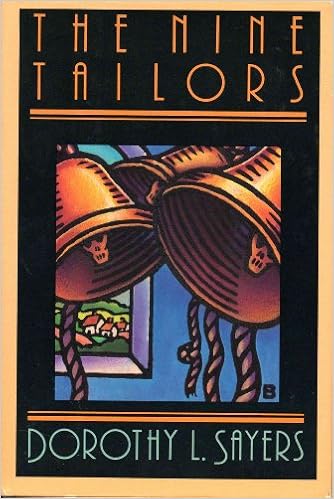
My mom started me on British mysteries; they were a favorite of hers and she gave or lent me recent reprints or compilations of all Dorothy Sayers' Peter Wimsey books. After Lord Peter, P.D.James' Adam Dalgliesh was dark and Martha Grimes' Richard Jury and Melrose Plant were fluff...but all in good fun. I spent many happy hours reading the latest in these series...at least until Ms. Grimes freaked out about pigs.....
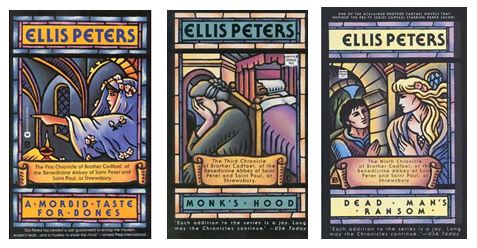
In the paperback book department, Ellis Peters' Brother Cadfael books introduced the interesting historical background of a medieval abbey and the turmoil of 12th century....with the bonus of a television series on PBS starring Derek Jacobi, as good a monkish sleuth as I could imagine.
If our books were organized, we'd have a whole rainbow of sleeves sporting the stylized horse design that used to scream across the book store, 'Here's a new Dick Francis!"
If our books were organized, we'd have a whole rainbow of sleeves sporting the stylized horse design that used to scream across the book store, 'Here's a new Dick Francis!"

Though we knew nothing of British horse racing...or anything else having to do with horses, each novel kept us turning pages as we waited to discover 1) What esoteric or convoluted way the hero would be entangled in the horse racing and/or breeding world whatever his career path, and 2) how long it would take him to get beat up? Yes, Dick Francis, not one to trifle with success, had a certain structure to his books and having his heroes get beat up a couple of times was part of that formula...Despite the general attractiveness of the protagonists, I never worried about skipping to the end; the Dick Francis blueprint assured me the bad guy would be caught and things would turn out OK.

I wish I remembered how I came to read Dorothy Dunnett's historical series about the Scottish nobleman Francis Crawford of Lymond. I know Blake and I were still searching out the final volumes after we were married, even though Wikipedia tells us Checkmate, the finale, was published in 1975. Perhaps the volumes weren't published in the U.S. until later? These tremendously complex historical novels, full of exotic locales, phrases in French, classical literary allusions and all kinds of real and imagined characters with a bewildering duplicity of names, take the hero (or is he?) all over the world. His friends and enemies sometimes love and sometimes loathe him; they don't always trust him, even as they follow him across a world of peril and politics for gold and country...but mostly gold. Betrayal, treason, heroics, religion, family, psychics, prophets, curses, orphans, bastards, and lost loves: these books are high class soap opera built on a foundation of fact. I am sure I would enjoy them even more upon rereading, but, alas! So many other pages await...
(As an aside, we both liked Dorothy Dunnett's odd first person mysteries about the painter Johnson Johnson...haven't seen them in bookstores for years, but with the wonders of Amazon, they still seem to be in circulation under different titles.)
I would be remiss if I didn't give a shout out to Neal Stephenson's series of three massive tomes, The Baroque Cycle. I originally bought the hardback version of the first book, Quicksilver, thinking it might be something Blake would enjoy...Several years later, I pulled it off our bookshelf, read the blurb again, read the first chapter set in colonial New England...and I was hooked. Mr. Stephenson walks the line between history and fantasy and spins rollicking good yarns about the trio of characters he introduces in volume 1... makes them come alive in all their foibles and failures in volume 2...finally tying up the loose strings with heroism and hocus pocus as love triumphs after all in volume 3. Isaac Newton, Leibniz, kings, Puritans, pirates, scientists and alchemists. After reading the books, I just read a bunch of reviews...clearly, this is a trilogy that evokes strong feelings! If, like me, folks had read the entire 2500 on Kindle, they would not have been grumpy. It's an adventure tale, a witty one, and I'm afraid I pulled the book equivalent of binge-watching by going full steam ahead, damn the torpedoes between volumes.
But, let us end this never ending story with the novel I usually single out when asked for the best novel I've ever read: The Killer Angels by Michael Shaara. I think I bought this book after reading a review lauding its praises; while not in any sense an expert on the Civil War, I was raised in a home with Bruce Catton on the book shelves among other volumes. My father discussed battle and battlegrounds, generals and politicians both North and South with a familiarity born of deep reading.
The Killer Angels is epic, building the drama of Gettysburg through the inner dialogue of figures we know only as names. Once again, we saw the movie and were mesmerized by the final battle scenes...but no more so than by the superb narrative provided by the book itself. This is a war book, and not for children. But no other book I've read on the Civil War evokes the combined violence, glory, and tragedy of that great battleground.

P.S......







